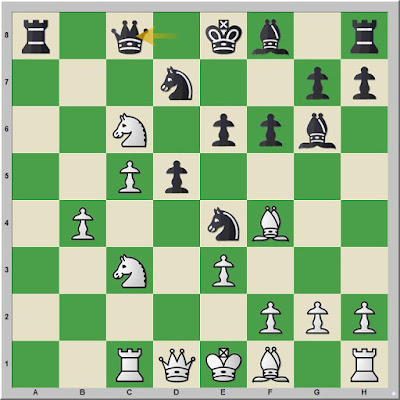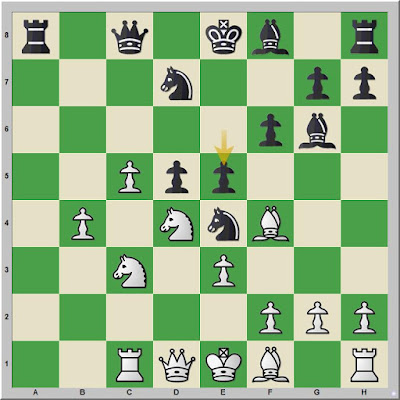These crude minimums belie the point that I do not know the total number of online blitz games I've played. I have played online blitz regularly since 1998, often dozens of games in a day. I play a few games most days. My personal database currently holds 103,382 games. It excludes most bullet games, although I make an exception for 2 +1. It also has many games at longer time controls, including many hundreds of correspondence games. I have not been able to save every game, and have also lost tens of thousands through database errors.
When I started saving my games in a database, I was using Chessmaster 7000. About 2001, I began learning the free versions of ChessBase and Chess Assistant, both limited to database not exceeding 15,000 games. I recall that CB was more restricted than CA. In 2003, I bought CB 8 and attempted to gather all of my online games into one database.
What has been the impact of this massive amount of online blitz on the quality of my play?
The database contains a near endless supply of instructive positions that arise from sloppy play. Exactly the sort of play that my students see in their games.
It has certainly given me ample practice with pattern recognition, and may have developed my intuitive feel for many types of positions. It has given me immense experience in playing my favored openings, such that it is very difficult for an opponent to surprise me with something that I have not seen before.
Performing elementary checkmates with minimal time on the clock is gratifying, and helps me reinforce the skill in my teaching. But, it is also humbling that I have stalemated my opponent with queen and king against king more than once.
The most important detrimental impact has been that unsound risky play has been rewarded in such a way that it has become second nature. Making the effort to switch to 3 + 2, or even the 5 + 2 that I am currently playing in USCF online blitz rated tournaments has been rough. It is much more difficult to win lost positions on the clock when there is an increment. In my OTB games, I have bouts of impatience where blitz thinking interferes with careful calculation.
Last week, I had White and this position.
White to move
Confidently assuming that I had a strategic advantage, I was blind to tactics. I had plenty of time, but did not use it.
22.Bg2?? Rxd2 and I resigned.
The Morning Membership tournaments are short and fun, and they are at a time that is good for me both in terms of schedule and capabilities. Unlike the stereotypical late-night chess player, I am a morning person. These events last about an hour, are played at 5 + 2 on Chess.com, and draw 30-40 players. They begin at 8:00 am in my west coast time zone, which is late morning on the east coast.
In my first event on July 8, I was the third highest rated player, tied with two others with perfect scores, and won the first place trophy on tiebreaks. The free membership extensions that are awarded after the event are based on a random drawing, not performance. I played three more this week. The blunder presented above was my first loss. I scored 2/4 on Monday, lost my last round game on Wednesday, and on Friday, when I was the top rated player, gave up a draw in the second round.
My online blitz rating is going down. Nonetheless, I have signed up for the next sixteen--every one through the end of August. Learning to pace myself in slower blitz may be good for my game.
The Morning Membership tournaments are short and fun, and they are at a time that is good for me both in terms of schedule and capabilities. Unlike the stereotypical late-night chess player, I am a morning person. These events last about an hour, are played at 5 + 2 on Chess.com, and draw 30-40 players. They begin at 8:00 am in my west coast time zone, which is late morning on the east coast.
In my first event on July 8, I was the third highest rated player, tied with two others with perfect scores, and won the first place trophy on tiebreaks. The free membership extensions that are awarded after the event are based on a random drawing, not performance. I played three more this week. The blunder presented above was my first loss. I scored 2/4 on Monday, lost my last round game on Wednesday, and on Friday, when I was the top rated player, gave up a draw in the second round.
My online blitz rating is going down. Nonetheless, I have signed up for the next sixteen--every one through the end of August. Learning to pace myself in slower blitz may be good for my game.
In "The Soul of Philidor", I presented a position where I was happy with my choice because it reflected the application of recent study. Strategically, it was a nice game and I was happy with my performance. Postgame analysis, however, quickly revealed to me that I missed several opportunities. Using the engine to check my postgame analysis revealed more missed opportunities. As I learn to slow down, perhaps I will increase my alertness to tactical chances. Intuitive play has its place, but some calculation is necessary for improving my game.
In each of these five positions, I had a better move than the one I played. Although I dominated most of the game and managed to win, I did concede the advantage and was even worse through part of the game.
White to move
I played 10.a3??
A couple of weeks ago, I was examining the tactics in a Grandmaster game that involved the type of position that occurs after the superior 10.b5!
A couple of weeks ago, I was examining the tactics in a Grandmaster game that involved the type of position that occurs after the superior 10.b5!
White to move
15.Nd4?? walked into a fork, although that was not fatal and my pawns proved to be compensation for the knight. But 15.Nxe4 or 15.Bb5 were both better choices
White to move
16.Bg3?? turned out okay in the game, although Black now has a clear advantage. After 16.Nxd5 exf4 17.f3, White has a decisive advantage.
White to move
22.b5 Na4 23.Ra3 Nc2 leads to the next position, and I again have an advantage. However, 22.Re3 wins a piece. I also could have played 21.Re3, but 21.Bf3 was good enough to regain the advantage.
White to move
24.Rxa8! was a move that I considered, but without adequate calculation. Black is busted.
I played the seemingly safer 24.Qb3. A few moves later, my opponent returned the sacrificed piece which left me a clear pawn ahead. My bishops also controlled the squares my passed b-pawn needed.
I played the seemingly safer 24.Qb3. A few moves later, my opponent returned the sacrificed piece which left me a clear pawn ahead. My bishops also controlled the squares my passed b-pawn needed.
I can play better.
















No comments:
Post a Comment